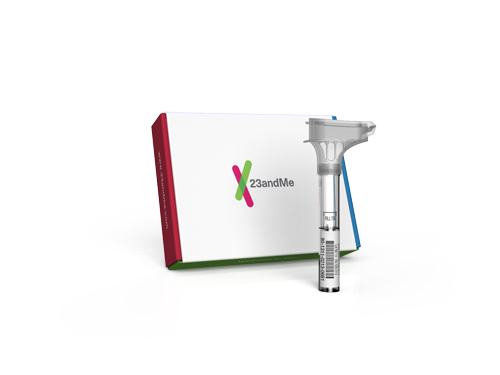More than a week after the FDA told 23andMe to stop marketing its Personal Genomic Service tests, the Mountain View, CA–based company says it is complying.
"23andMe halted all marketing last week in accordance with the FDA’s letter. This includes advertising on TV, radio and online channels," Tracy Gale, a spokeswoman for the company, said in an email.
Gale declined to provide further information, including why 23andMe's YouTube marketing page was operational as of Tuesday evening.
In many ways, 23andMe and it order-over-the-Internet genetic test kits are in the center of the conflict between information technology healthcare innovators and regulators such as the FDA that are entrusted with protecting patient safety.
The FDA’s move is but another sign that the regulator is increasingly concerned about the proliferation of relatively cheap genetic tests on the market.
The agency in 2010 informed 23andMe and four other genetic test makers that their products needed federal approval.
Three years later, FDA official Alberto Gutierrez tells 23andMe in a warning letter dated Nov. 22 that it did not work with the agency toward de novo classification and did not provide additional information requested to review a 510(k). The company has not even communicated with the FDA since May, according to Gutierrez.
“Instead, we have become aware that you have initiated new marketing campaigns, including television commercials that, together with an increasing list of indications, show that you plan to expand the PGS’s uses and consumer base without obtaining marketing authorization from FDA,” Gutierrez says.
23andMe cofounder and CEO Anne Wojcicki says in a blog post described the situation as "new territory for both 23andMe and the FDA."
"This makes the regulatory process with the FDA important because the work we are doing with the agency will help lay the groundwork for what other companies in this new industry do in the future. It will also provide important reassurance to the public that the process and science behind the service meet the rigorous standards required by those entrusted with the public’s safety,"

Those with futuristic visions for health care have pointed to affordable genetic testing as one of the potential disruptors. It has been possible, for example, to order a 23andMe saliva collection kit online, mail it back in, and have the DNA tested for a whole host of factors related to health predisposition and ancestry.
23andMe cofounder and CEO Anne Wojcicki was listed as one of “10 People Who Changed the Medtech Industry” in a June article in MPMN’s sister publication MDDI.
The article said: “Through 23andMe, Wojcicki is helping to usher in a new era of healthcare in which patients are empowered, care is personalized, and decisions are driven by big data.”
The FDA’s major worry is that products such as 23andMe might empower patients to make dangerous health decisions based on test results that the FDA has not proved to be reliable.
The FDA’s warning letter to 23andMe expresses particular concern over Personal Genomic Service uses related to BRCA gene tests that can predict women’s susceptibility to breast cancer.
“If the BRCA-related risk assessment for breast or ovarian cancer reports a false positive, it could lead a patient to undergo prophylactic surgery, chemoprevention, intensive screening, or other morbidity-inducing actions, while a false negative could result in a failure to recognize an actual risk that may exist,” says Gutierrez, who is director of the Office of In vitro Diagnostics and Radiological Health at the FDA’s Center for Devices and Radiological Health.
The letter also expresses concerns over assessments for drug responses, which “carry the risks that patients relying on such tests may begin to self-manage their treatments through dose changes or even abandon certain therapies depending on the outcome of the assessment.”





